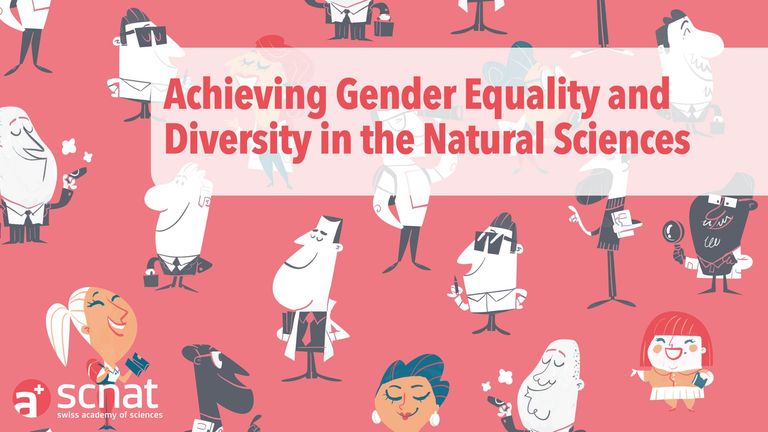Related topics

“Embracing gender diversity is good for science”
18-4-2023 – The expectation that women shall be and act like their male colleagues, especially when it comes to meet excellence criteria, is causing many women to leave science after their PhD or Postdoc. To plug this ‘leaky pipeline’ there is the need for a broader range of accepted career paths, behaviors and work models.
Image: zvg
Women’s success in academic leadership can and should be robust, not fragile
17.10.2022 – Women’s success in academic leadership challenges stereotypes and is subject to backlash and resistance. Success rests on individual effort and accomplishment but also reflects alignment with the academic power system and support from others. Appreciation of the systemic and collective aspects of success is essential for women’s success to be robust.
Image: zvg
I want it! Career experiences by young scientists
Female junior and advanced scientists, yet without a permanent position, share their experiences and their expectations regarding gender equality and diversity. They will present their career path and indicate highlights and hurdles of their professional development. During the panel discussion individual experiences as well as the role of institutional and societal boundary conditions will be addressed.
Image: pixelfarm
I did it! Experiences from leading scientists
Women who have attained leading positions may on their career path have been confronted with specific, gender related challenges. During the panel discussion, female professors and leaders will inform about their career path. They will include highlights and motivation of their career, the hurdles that they have encountered, and their solutions to overcome them. The interviews will address the significance of individual versus institutional and societal boundary conditions. Finally, the webinar aims to present experienced leaders to inspire young female scientists.
Image: pixelfarm
Rethinking excellence
The term “excellence” is extensively used in academic research to justify and target funding and recruitment decisions and policies. In this webinar, we invite our participants to an open critique of the concept of excellence. The Better Science Initiative calls for a rethink in academia towards more sustainability, diversity and equal opportunities.
Image: pixelfarm
The role of funding policies and the use of quota
The allocation of financial support for research by academic institutions or by funding agencies may have a major impact on gender equality in science and research. This webinar explores the potential and limitations of gender quota in the recruitment and financial support of women in academia.
Image: pixelfarm
